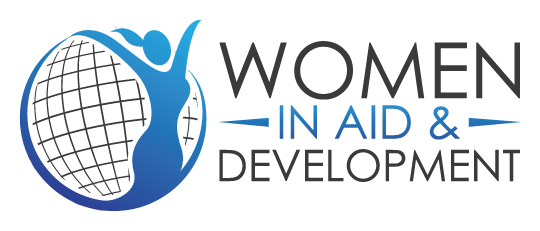Healthy, Sustainable and Inclusive Food Systems Event Recap
Agriculture is the main source of income for several hundred million people around the world who struggle with poverty and hunger, most of whom are connected to small-scale, or smallholder, farms that collectively supply most food in developing communities.
Our May events focused on the risks to agriculture-driven growth, poverty reduction, and food security due to multiple shocks from COVID-19-related disruptions to extreme weather, pests, and conflicts.
Events were held in Melbourne, Brisbane, Sydney and Canberra with people joining us ONLINE as well. We are grateful to the incredible speakers in each city who shared how they are working to improve food security with attendees. Here is a recap from each city. Don’t worry if you missed it, you can also watch recordings of each event below!
Melbourne
‘‘It was a fantastic evening at our Melbourne #WIAD May event as we discussed Healthy, Sustainable and Inclusive Food Systems.
It was a pleasure to hear from our guest speaker, Shan Huang, who has worked and researched with various international NGOs and is currently completing her PhD at Burnett Institute. Huge thanks to Oxfam for the space where we can meet and have these great conversations!
Ally Kemp - Communications Intern
You can watch the full Melbourne event here.
Brisbane
Notable Quotes from Brisbane Speakers
‘‘There is high value in just teaching but also learning from community partners and women in STEM overseas.’’ - Dr Risti Permani
“Food Justice is the right for all people to have consistent access to nutritional food. 33 million people do not have access to food and Australia is not immune..” Professor Yasmina Sultanbawa
Key takeaways from the event in Brisbane include:
Collaboration is crucial for development; Intersectional, multilevel and Multinational
Multi-disciplinary works are needed to address challenges in agrifood systems
There are different ways to assess gender issues in the agricultural sector; talking/interviewing both males and females will generate a better understanding of the issue rather than only talking to one person
Agriculture International development projects could diversify their approach - Ag/food security is SO multidisciplinary
Overall, some really good reflections and information on big-scale and small-scale systems were shared.
Chris Franks - WiAD Chair
You can watch the full Brisbane event here.
Sydney
Notable Quotes from Sydney Speakers
"Poverty and hunger are inextricably linked, and feed into each other in a vicious cycle." - Ai Leen Quah
"Food is incredibly intimate, and also provides a window into culture and community and economies." - Professor Anne-Marie Thow
Key takeaways from attendees:
‘‘Interesting to hear about the variety of avenues to get a role in the Aid & Development space.’’ - Catherine Schwab
’’Food insecurity is widespread.’’ - Jayden
’The importance/ significance of collaboration - Collaboration is key’’ = Anonymous
’’ I learned how we as women can have a big impact on the food system.’’ - Thiloshini
’Challenges with achieving food security in conjunction with good balanced nutrition.’’ - Nitasha Ackerman
’’Focus on your contribution not just trying to make a difference.’’ - Anne Marie Kamara
You can watch the full Sydney event here.
Canberra
Key points raised by Canberra speaker Robyn Alders:
Farmers used to produce their food so global food systems were not needed. Many systems feed some but not all of the population - many countries, even Australia, have pockets of malnutrition. The initial focus of systems planning was on infectious disease control to ensure kids have something to eat and expanded from there.
No animals eat a vegan diet anywhere on earth because it’s a diet that cannot sustain life without supplements. Ovo lacto vegetarian diets are possible but tricky for young kids to ensure they are balanced so demand eating a lot more because micronutrients vitamins and minerals present in foods vary e.g. for a nursing Mother to get the necessary level of Vitamin A for good health and baby development she needs to eat either:
Chicken liver 9g per month
Spinach 148 gpm
Orange vegetable 220 gpm
Papaya 700gpm
Post-COVID and with uncertain supply due to the Ukraine war most countries have realised the need for shorter food systems to feed their communities with certainty.
You can watch the full Canberra event here.
————————————————————————————————————————————
A massive thank you to all of our amazing speakers, all those who attended and of course, our city leaders, who so generously shared their time to ensure that all events were a success.
We hope to see you all again at our next series of events in July!
